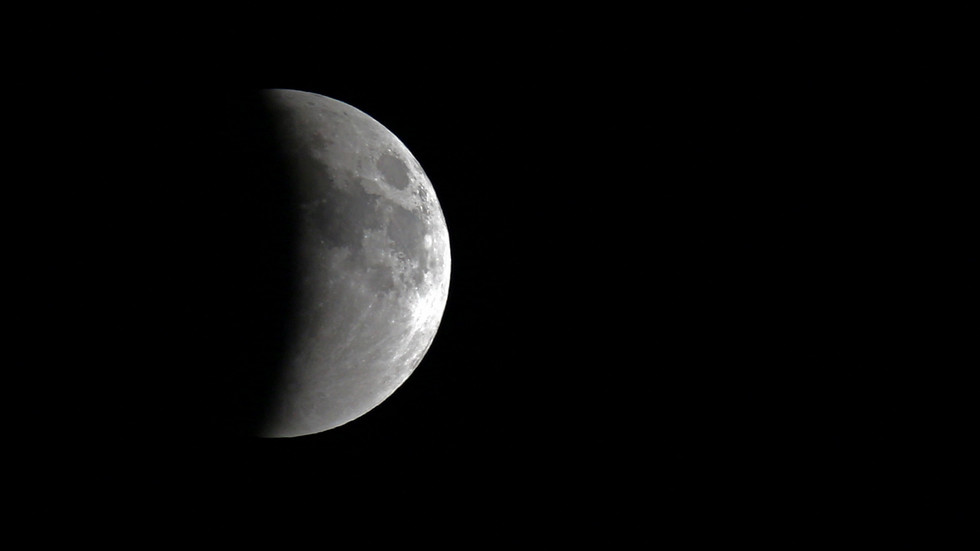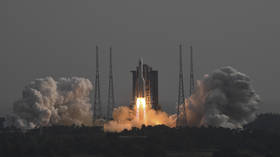
The two nations have drafted the paperwork for a space facility, Russia’s prime minister has said

An eclipsed supermoon is shown on September 27, 2015 in New York City. © Michael Heiman / Getty Images / AFP
Russia and China have prepared an agreement on building the International Lunar Research Station (ILRS), Russian Prime Minister Mikhail Mishustin announced on Monday. The project is potentially open to other countries, while the facility itself is expected to become operational by 2035.
Speaking at a regular meeting of the heads of the two countries’ governments, Mishustin said that Moscow and Beijing “see a significant potential in high-tech industries, including digitalization and space research.”
The premier noted that Russia and China “have prepared for signing” an intergovernmental agreement on the establishment of the International Lunar Research Station. “This is a significant step for our countries,” he added.
The ILRS is being developed by Russia’s space agency Roscosmos and China’s National Space Administration (CNSA). The bilateral project, however, is open to all interested countries and international partners and seeks to “promote humanity’s exploration and use of outer space for peaceful purposes,” according to a 2021 memorandum of understanding between Moscow and Beijing.

Read more
The proposed space facility will consist of a station on the lunar orbit and a moon base on the surface. It is also expected to be supported by several smart mobile rovers and a hopping robot, according to CNSA and Roscosmos representatives.
According to a roadmap provided by Roscosmos, the ILRS is expected to become operational by 2035. With the project divided in several stages, Russia and China plan to choose a location for the moon base by 2025, with construction efforts to follow between 2026 and 2035.
When ready, the station will be studying lunar topography, geology, as well as the internal structure of the moon, while supporting further space exploration in the future.
The joint Sino-Russian initiative comes after Roscosmos chief Yury Borisov said in late July that Russia would withdraw from the International Space Station after 2024, adding that Moscow intended to fulfill its obligations to its foreign partners.
Later, he clarified that the exact timeline for the ISS withdrawal could depend on several factors, including the condition of the ISS itself and its operational performance. In the meantime, Borisov said that Russia planned to focus on building its own space facility.
Last year, Vladimir Solovyov, a former Soviet cosmonaut and chief designer for spacecraft manufacturer RSC Energia Construction, said that construction of the Russian Orbital Service Station (ROSS) would start as early as in 2028.




